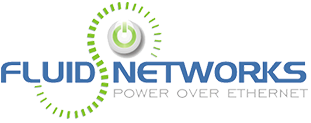February has two days dedicated to our computers and their safety. Tuesday, February 7th is International Safer Internet Day and Monday, February 13th is National Clean Out Your Computer Day. Both days are an excellent reminder to think critically about what we do on our devices and how we can keep ourselves and our organizations safe.
International Safer Internet Day — Together, we can make the internet a safer place to be
Whether you use the internet for work, play or socializing, take time this month to think about ways to use technology safely. Here are a few tips to navigate the internet without exposing your personal information to unintended people.
Slow down
People may receive over 100 emails a day. It’s easy to move through them quickly, click on links and reply without a second thought. But working quickly can be dangerous. The links we click on and the people we talk to may differ from what they seem. Links could lead to malware-infested websites, and the person on the other side of that email could be a social engineer.
Verify
When using public Wi-Fi, be sure to choose a legitimate, trusted network that is password-protected. Also, verify that the website you are going to is secure. To do that, make sure your connections use HTTPS — the S stands for secure. HTTPS encrypts your browser connection, making it more difficult for hackers to steal your data. The lock icon in your browser bar will indicate that your site is secured.
Secure your devices
Whether you are on your personal device, work laptop or even a smart device, you must check your security settings. First, use a lock screen on your phone and computer. That way, attackers will have a more challenging time accessing your data if the device is lost or stolen. Be sure to change the default password on your smart devices and routers; hackers often gain access using known default passwords.
To learn more about Safer Internet Day and the organization's initiatives, visit https://www.saferinternetday.org.
National Clean Out Your Computer Day
Back up your data
Backing up your data is critical for security. Use an external hard drive for personal data and your organization's approved cloud storage service for work data. Removing any unnecessary files will also help you stay organized and secure.
Clean your hardware
Clean hardware helps to keep your computer running smoothly. When you remove the dust and crumbs, you protect the essential internal parts from wear and tear. And the better your hardware, the better it is for your software.
Declutter software programs
Remove any programs that are not in use. Removing unused programs will help ensure that there are no open gateways for cybercriminals.
Check it! — Clean desk checklist
It can be easy to let our workspace get messy on busy days. We have notes, documents (digital and physical!) and devices galore. Clutter is one thing, but keeping our desks cyber-secure is another.
Our simple checklist can help you and others in your organization stay safe. It follows the 3 Ps: Plan, Protect and Pick up. The checklist gives you a list of non-negotiable items to review for everyday security.
- Plan
- Protect
- Pick up
Cybersecurity roles — Secure coder
Have you ever wondered what your friendly cybersecurity team is up to? Each month we will share a cybersecurity job role to give you an inside look!
Secure coder
A secure coder develops computer software in a way that helps to guard against security vulnerabilities. They focus on building secure software right from the beginning, making sure that vulnerabilities can’t be introduced accidentally. Typically, they follow the guidelines of the Open Web Application Security Project (OWASP) Foundation.
Tuesday Training… "Safe Web Browsing”"
Social media is a new frontier in communication, and a new frontier means new dangers. Take a few minutes to learn about using social media safely.

